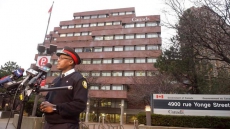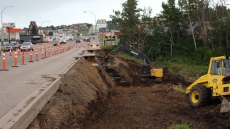Canadian researchers, including one of Indian-origin, have developed a new screening tool that could help emergency physicians uncover the sometimes dangerous hidden conditions that cause some people to faint.
The findings showed that syncope, or fainting, accounts for between 1 per cent and 3 per cent of all emergency department visits.
In most cases, it is benign, but for about 10 per cent of people who visit the emergency room for fainting it can be a symptom of a potentially life-threatening condition like arrhythmia, or heart rhythm disturbance.
The nine-question Canadian Syncope Risk Score helps emergency doctors predict the risk of a patient experiencing an adverse event, such as potentially fatal irregular heart rhythm, heart attack and other cardiac events, gastrointestinal bleeding, and even death within a month after fainting.
"Fainting is a big problem. The way fainting patients are examined in emergency rooms varies greatly between physicians and hospitals," said Venkatesh Thiruganasambandamoorthy, Assistant Professor at the University of Ottawa in Canada.
"We hope that this screening tool will make the process more consistent and improve the detection of serious conditions related to fainting," Thiruganasambandamoorthy added.
For the study, the team looked at 4030 patients. Of the total patients, 147 experienced a serious event in the month following discharge.
Signs of a common and harmless variety of fainting, such as being in a warm or crowded place, standing for a long time, or feeling intense fear, emotion or pain; a history of heart disease; abnormal electrocardiogram (ECG) measurements; higher levels of troponin, a protein specific to heart muscle are some of the factors that physicians can plug in to a screening tool.
When combined, these factors give the patient's total risk of an adverse event, from very low to very high.
Most fainting patients admitted to hospital do not need to be there. These patients can spend four to seven hours in the emergency department before a decision to discharge them is made, the researchers noted.
"If our tool can discharge low-risk patients quickly and safely, then I think we can reduce emergency room wait times and open up those resources to other patients," Thiruganasambandamoorthy noted.



